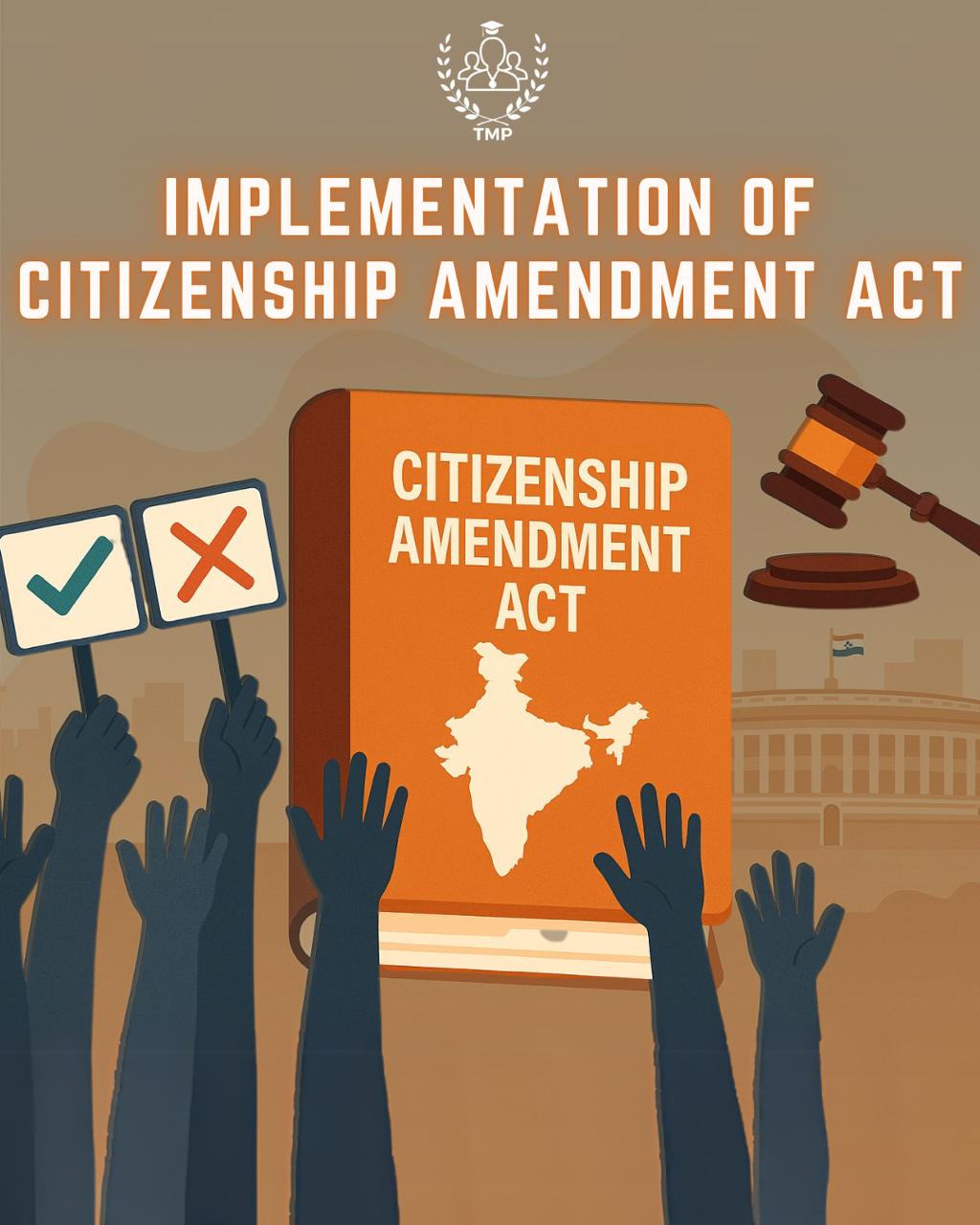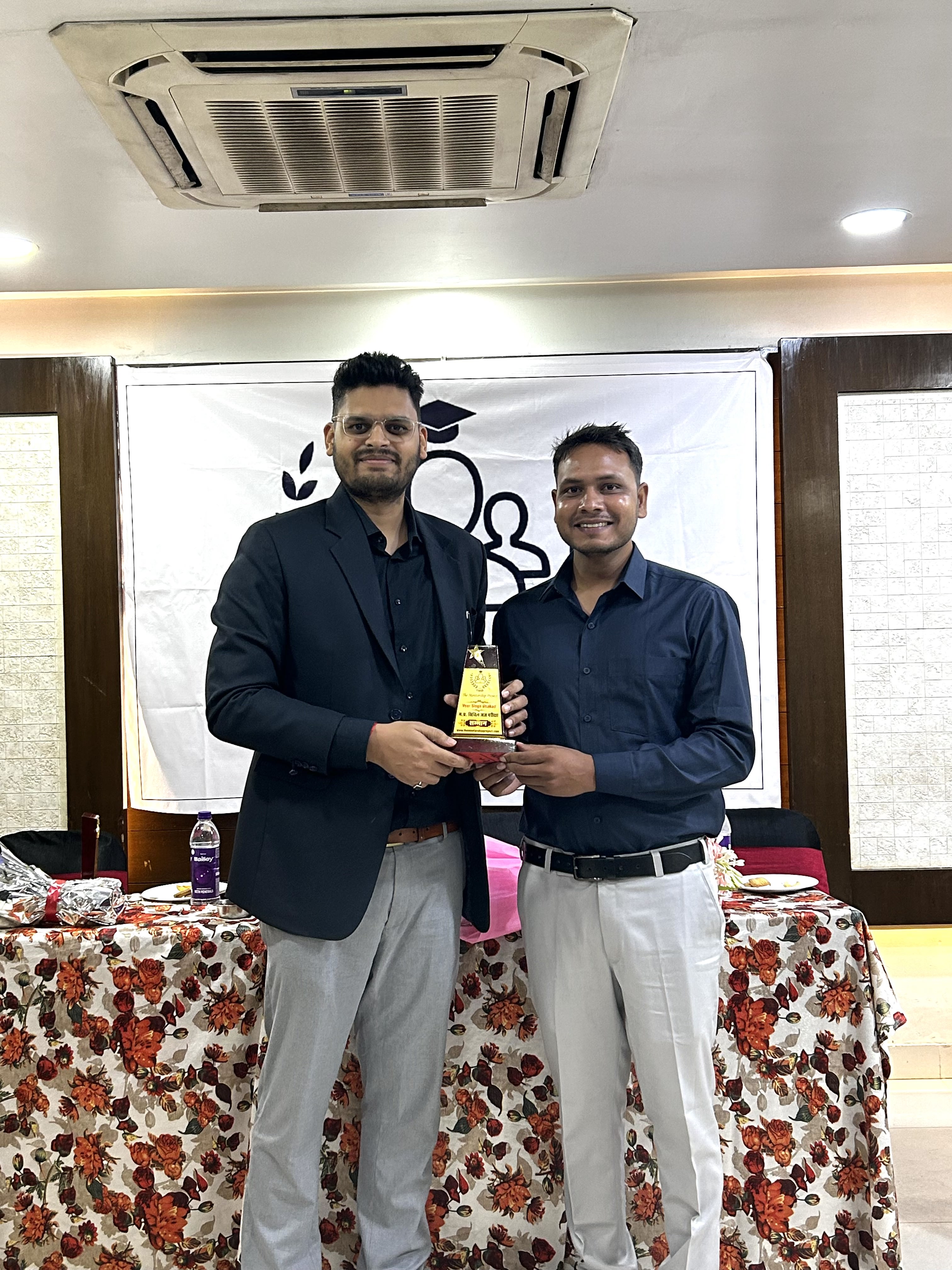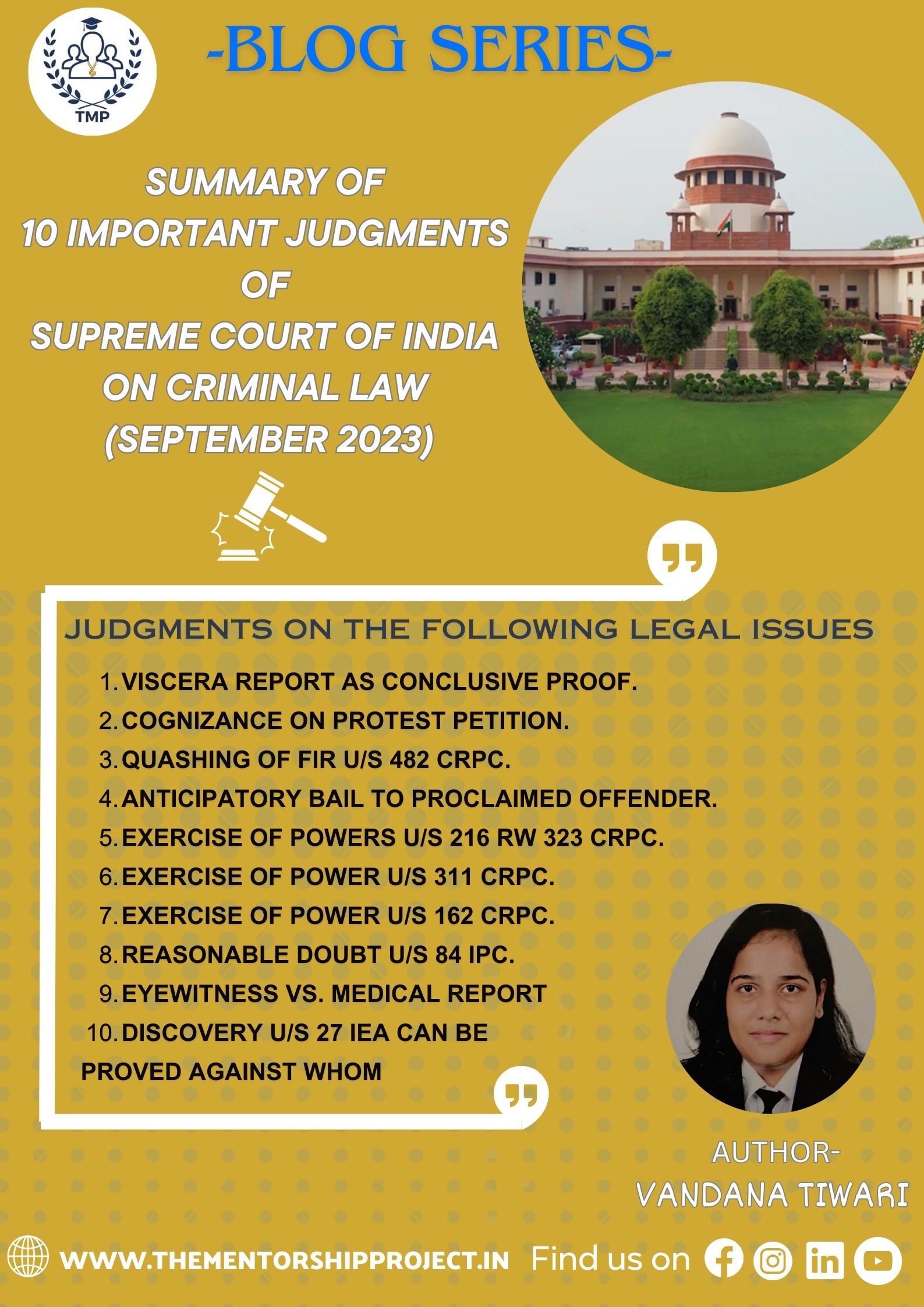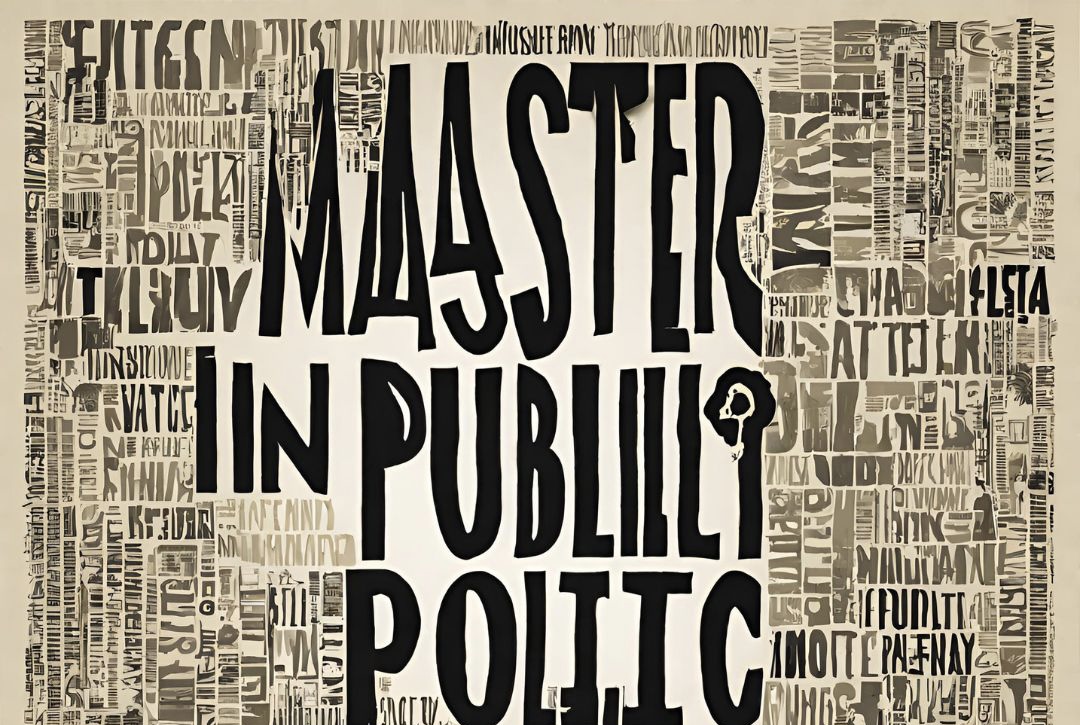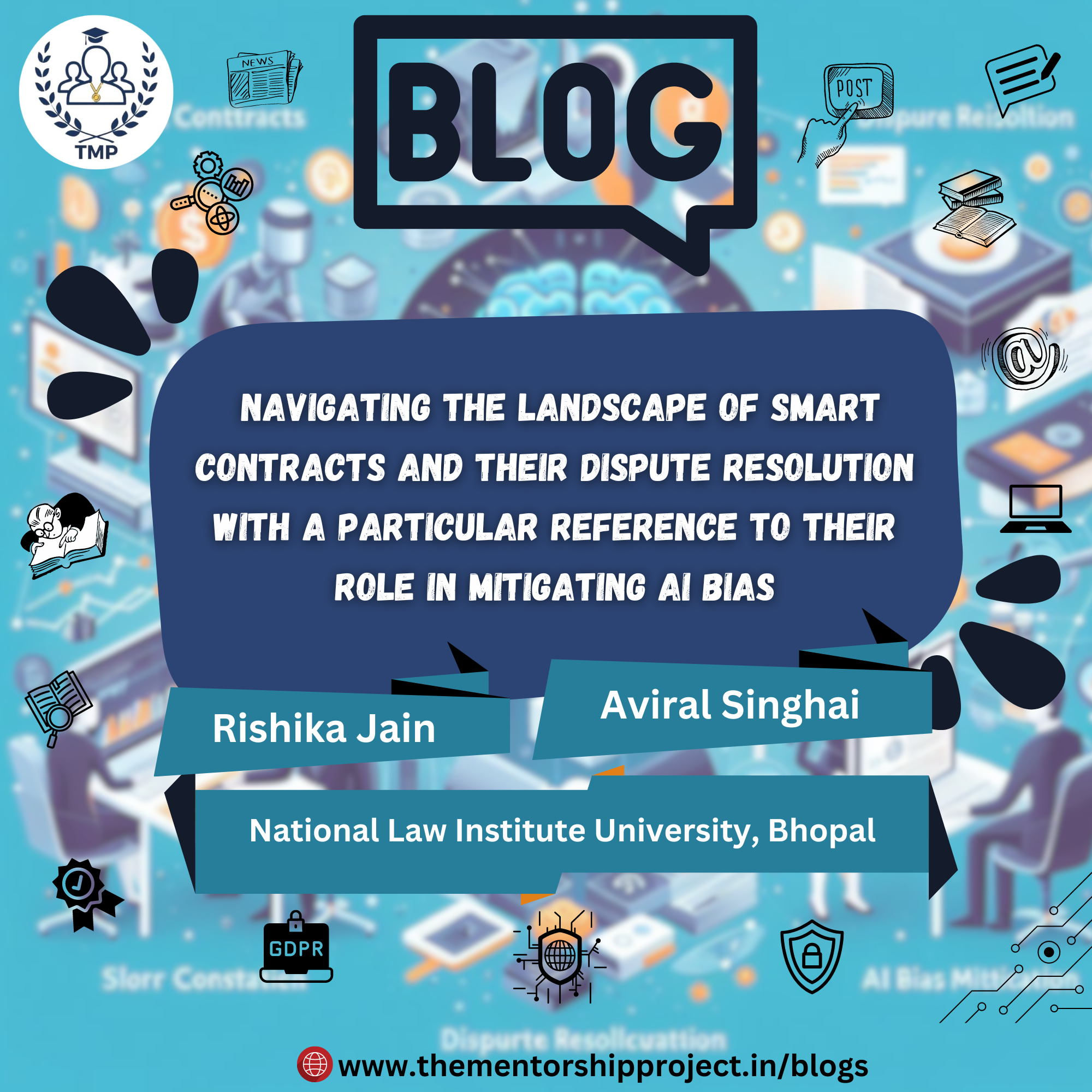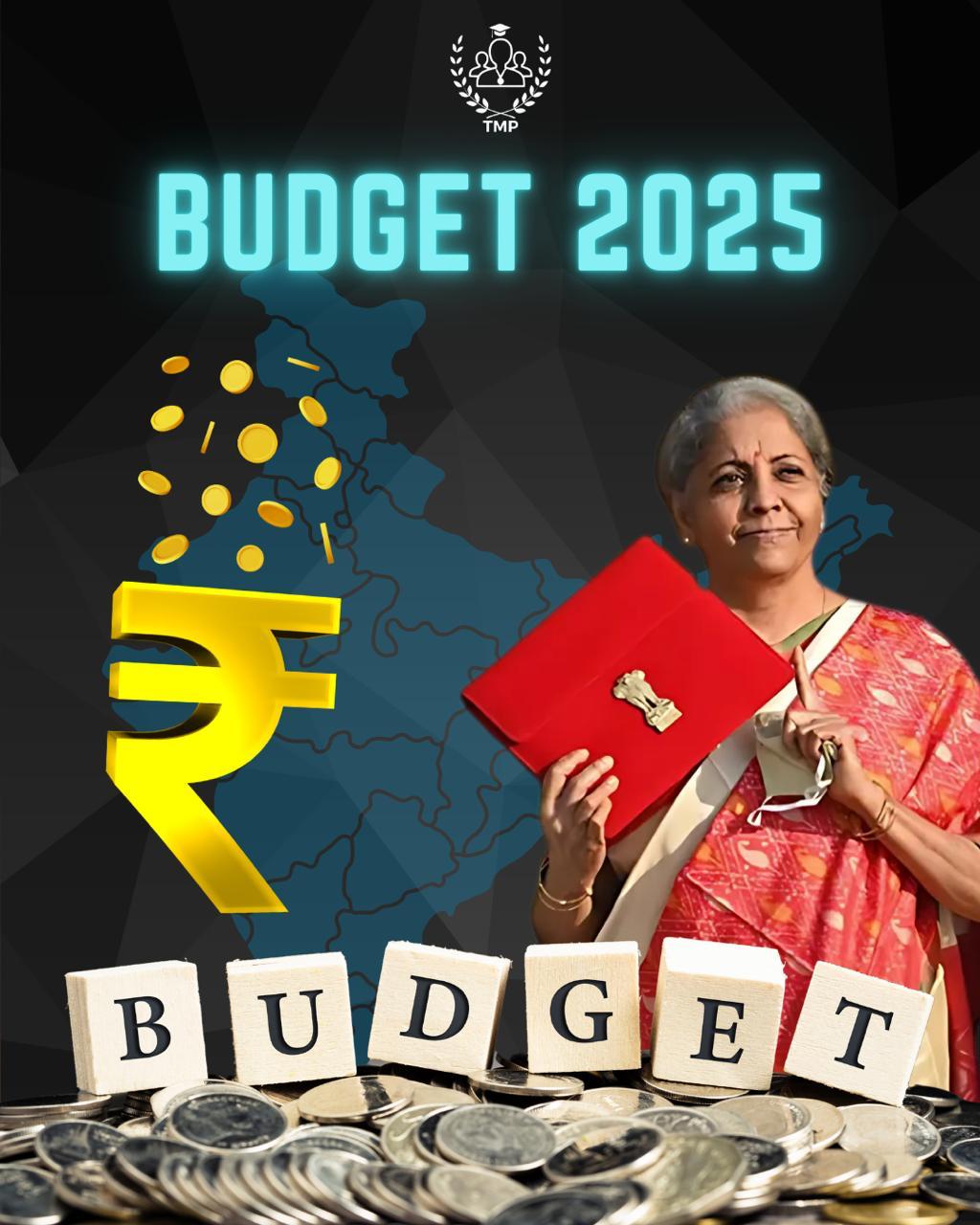May 26 , 2025
IMPLEMENTATION OF CITIZENSHIP AMENDMENT ACT: A LEGAL AND SOCIAL PERSPECTIVE
Introduction
The Citizenship Amendment Act, also known as CAA, was given the assent of the president and was passed in December 2019, and since then, it has been a controversial matter. It has brought a major changes in the society as the last act was the citizenship act of 1955 and after that no significant change was brought forward until the citizenship amendment act. This Act amends the citizenship law that was followed to provide citizenship to people who are mistreated in religious minorities from different countries like: Afghanistan, Bangladesh and Pakistan who have entered the Indian territory before 31 December 2014.
This Article aims at focusing on the history and development which led to the CAA, How it is implemented, How the framework is established.?, challenges faced while implementing CAA, How will it affect the future of citizens in India.
Legislative History and Development Of CAA
It all started with the introduction of the citizenship amendment bill which was introduced in 2016, it was introduced to make changes in the citizenship act of 1955 to provide citizenship to the minorities of the neighbouring countries who were treated unfairly. It was introduced in the 16th lok sabha session but before the bill could get the assent 16th Lok Sabha was dissolved. In 2019 during the 17th Lok Sabha session[1] A revised bill was introduced. It included six religious communities- Hindu, Christian, Sikh, Buddhists, Parsis, Jains from three different countries: Afghanistan, Pakistan, Bangladesh. This bill proposed that the residency requirement for naturalization should be reduced from 11 years to 5 years for the above mentioned communities. There are people in favour as well as against the bill; supporters argued that it protects against the injustice done in the past. In contrast, some people criticized that it excluded certain religious groups and challenged its constitutional validity. Despite the strong opposition the bill was passed in the lok sabha in 2019 with 311 votes in favor and 80 votes in opposition. The Rajya Sabha also passed the bill with a majority of 125 votes. On 12 December 2019, President Ram Nath Kovind gave it's assent to the citizenship amendment bill to convert it into the citizenship amendment act[2]. The changes that were made in the Act are as follows: i) Section 2 of the citizenship act was amended to change the definition of illegal immigrants for the mentioned communities, ii) a new section 6B is inserted in the Act to create special provisions for citizenship for these groups, iii) Third schedule which contains the residency requirement is reduced.
Implementation Of Framework
After the bill became an act the rules for implementation of the Act were to followed shortly by the Ministry of Home Affairs (MHA) but due to the major outbreak of corona virus pandemic, implementation of the Act started in 2022 when MHA delegated the powers to the authorities in select districts across five states to grant citizenship to eligible applicants but this was still just a start or the beginning of the implementation of the framework.
In 2024 Government released the notification for the citizenship amendment rules which established the procedural framework necessary for full implementation.
In 2024 an online portal was launched to ease the process of the submitting, verifying documents, track applications without visiting the office physically. This portal was launched to help people but due to lack of knowledge that people had accessing the digital platform for them was a task. The task of verifying documents is distributed to the district-level committees. These bodies include representatives from the police, intelligence agencies and revenue departments.
Dedicated helpdesks has been established to help potential applicants to verify their documents. These offices help in filing applications and submitting them.
Regional Variations
The implementation of the CAA differs from state to state. The state facing distinct challenges implementing CAA are the states that share their borders with the countries mentioned above. In Assam there are complex cases due to it concerns regarding the illegal immigration. In Assam the implementation of CAA[3] should be by the provisions of the assam accord and their concern regarding the protection of the indegenious cultures. Special committiees has been set up to deal with the special needs for the implementation of the CAA which includes representatives from the local commitees evaluating the application in this sensitive region.
West Bengal shares its borders with Bangladesh and has historical migration patterns. The government in West Bengal had some reservations with the implementation mechanisms due to its demographic realities, but after some time established processing units for application and verification of the documents.
Punjab which shares its borders with Pakistan, their implementation wa focused on mainly sikh and hindu migrants with specialized focus on the refugee camps established after the partition.
Political Alignment and Implementation Approach
Their was a major difference in implementation in states which were governed by the current ruling party BJP( Bhartiya Janta Party) at the centre and states which were governed by the opposition parties. States governed by the BJP saw robust implementation[4]Additional resources were allocated for extensive outreach to the potential applicants. In contrast, states which were governed by opposition party like kerala, Punjab, west benagal initially had shown disinterest in implementing the legislation which raised questions regarding states refusing to comply with the centre’s orders. These states adopted only minimal compliance[5] approaches and did not allocate any additional resources for outreach to potential applicants.
Urban-Rural Implementation Disparities
In Urban areas implementation is done robustly as comparted to rural areas. In Urban areas cities which have a vast migrant population special processing centre’s has been established. Metropolitan cities has also benefitted from the digital infrastructure which have eased the application process and made it fluent.
In Rural areas lack of digital infrastructure, connectivity issues, administrative capacity has led to slower implementation which indirectly results in slower application rates in comparision to the urban centre’s.
Challenges and Controversies
The implementation of CAA has aroused many challenges and controversies nationwide which has affected it practical implementation and public opinion regarding the same. Aakar Patel, chair of the board at Amnesty International India, said in an article published on their website, stating that "The Citizenship Amendment Act[6] It is a bigoted law that legitimises discrimination based on religion and should never have been enacted in the first place. Its operationalization is a poor reflection on the Indian authorities as they fail to listen to many voices critical of the CAA[7] – from people across the country, civil society, international human rights organizations and the United Nations. The Indian authorities must immediately repeal the Citizenship Amendment Act due to its exclusionary and discriminatory provisions, structure and intent which run foul of India’s international human rights obligations.
“Kerala will stand united in opposing this communal and divisive law,” was a statement made by the then Chief Minister Pinarayi Vijayan, who said it on a post on X.
The United Nations High Commissioner[8] For human rights expressed concern over the law, calling it a "breach of India's international human rights obligation."
One of the major challenge to implementation of CAA is the verification of the documents. Many beneficiaries who had fled persecution lacked any comprehensive documentation from their country of origin. The guidelines for the implementation clearly states the requirement of a substantial document for verification which created obstacles for genuine applicants. So as the implementation of CAA progressed, the authorities felt the need for flexibility in the authentication. In the revised guidelines alternative documentation was allowed as well as in some cases affidavits’s from the community leaders confirming the applicant’s background also worked.
Legal challenges and controversial questions
More than two hundred thirty petitions has been filed challenging the implementation of CAA with Indian Union Muslim League being the primary petitioners. These petitions, which have been filed, contend that the Act violates articles 14 and 21 of the Indian constitution by discriminating based on religion and undermining the right to equality and dignity of the people.
There were various interim applications filed[9] by the petitioners to stay the implementation of CAA, Supreme Court[10] Declined to stay the implementation, instead directed the government to file the responses for the interim applications filed within three weeks.
The Supreme Court is overseeing several constitutional questions, which are as follows:
- Does CAA violate Article 14
- Whether the Act discriminates based on religion or not
- Does it infringe article 21 right to life with dignity or not
Current Status
As of May 2025 the documentation has been relaxed as far as it is concerned though Supreme Court continues analyzing constitutional challenges without giving a definitive ruiling thus the effectiveness and the future of CAA depends on the final verdict of the Supreme Court, diplomatic consideration with the neighbouring countries and how they address the regional disparities.
Conclusion
The implementation of CAA shows that the inconsistency was due to administrative capacity, due to the lack of accessibility of digital infrastructure in the rural areas. The political alignment drives the enthusiasm for the implementation, creating an uneven landscape for the applicants. At the same time, judicial bodies continue to shape the parameters for implementing the CAA. The Citizenship Amendment Act potray’s the challenges for applying a policy uniformly nationwide and it’s impact on a diverse, regional and political country like India.
(Author- Shivam Bhalla, Law student at Vivekanand Institute of Professional Studies, Delhi. Views expressed are personal.
[2] https://www.swarnimtimes.com/law/citizenship-amendment-bill-passed-shah-said-it-was-brought-to-rectify-the-historic-mistake/
[4] https://www.reuters.com/world/india/sporadic-protests-india-over-contentious-citizenship-law-2024-03-12
[5] https://www.hindutvawatch.org/india-citizenship-amendment-act-is-a-blow-to-indian-constitutional-values-and-international-standards-amnesty/
[6] https://www.amnesty.org/en/latest/news/2024/03/india-citizenship-amendment-act-is-a-blow-to-indian-constitutional-values-and-international-standards.
[7] https://seap.nationalityforall.org/news/india-citizenship-amendment-act-is-a-blow-to-indian-constitutional-values-and-international-standards/

